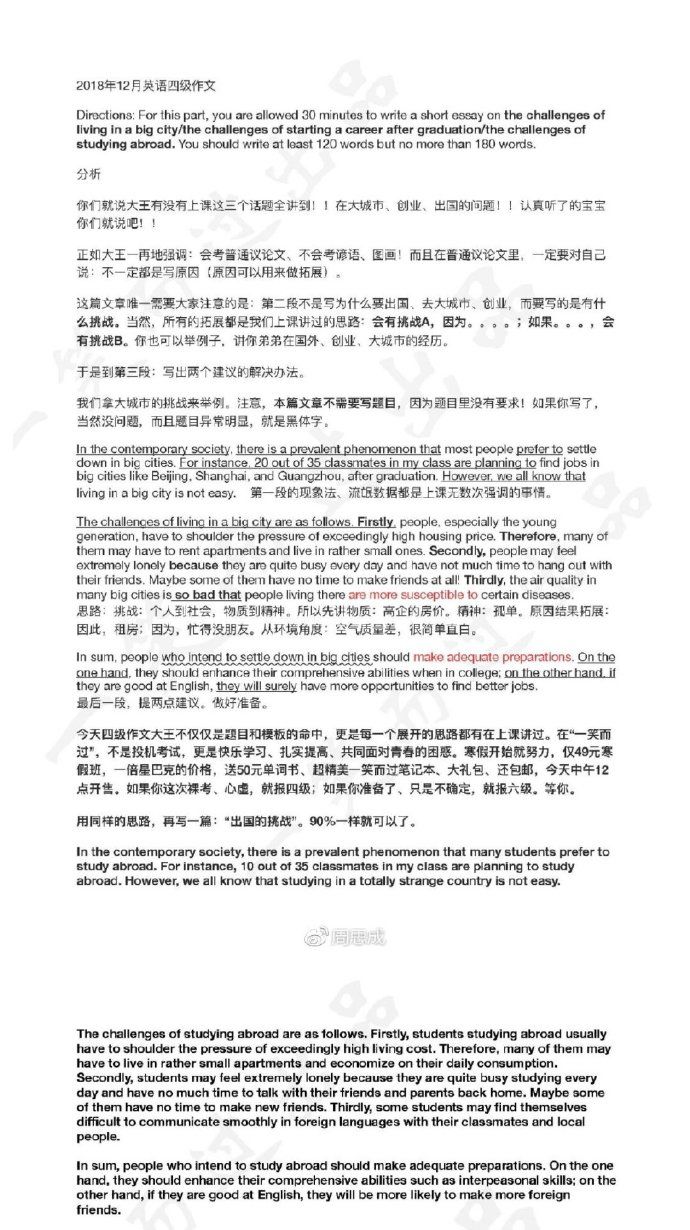TOEFL考试中容易用混的词2
|
已经有了用alternate来代替alternative的倾向。英文报刊常提到用 alternative, choice alternative:必须做出的严肃或重大的抉择,而且经常 choice:多指一般的选择,而且有更大的自由,即可选可不选。 amaze, surprise amaze: 多指因wonder and bewilderment(难以弄懂或困惑)而引 起的惊奇。 surprise: 多用于因事情unusual and unexpected(不寻常或未料到) 而产生的诧异,侧重于“意外”。 amiable, amicable 两个词都有“亲切”、“友好”的意思。 amiable 多用于指人 amicable多指关系 amoral, immoral amoral: 只是指与道德无关或不知何谓道德 immoral: 说一个人或一件事情不道德 anxious, eager anxious 往往出于worry(忧虑)或anxiety(担心); eager则出于enthusiasm(热衷)。 因此,如果要表示“孩子们热切地盼望圣诞节来临”,用 The children are eager for Christmas to come. apt, liable, likely apt和likely后接不定式时,区别极为细微。 likely指一件事情极可能发生,但不一定发生 apt指一件一定会发生的事情 liable一般和不理想的事情,如: 此外,apt的含义比likely广,另可指“恰当的”、“有能力的” an apt remark、an apt student、be apt at learning arbitrate, mediate arbitrate:仲裁,一般按一定的法律程序进行操作,所作最后决定对接受仲裁双 mediate:调解,即帮助排解纠纷和解决分歧,所作决定无法律上的约束力。 ardor, passion 两个词都表示stronge motions(热烈的感情),均可用于对待事业或对待个 在表示“热情”和“激情”时,ardor似乎比较正宗,ardor的原意是burning, assent, consent assent: 指赞许某种意见或建议 consent: 指对提出的要求表示同意或让步 |








